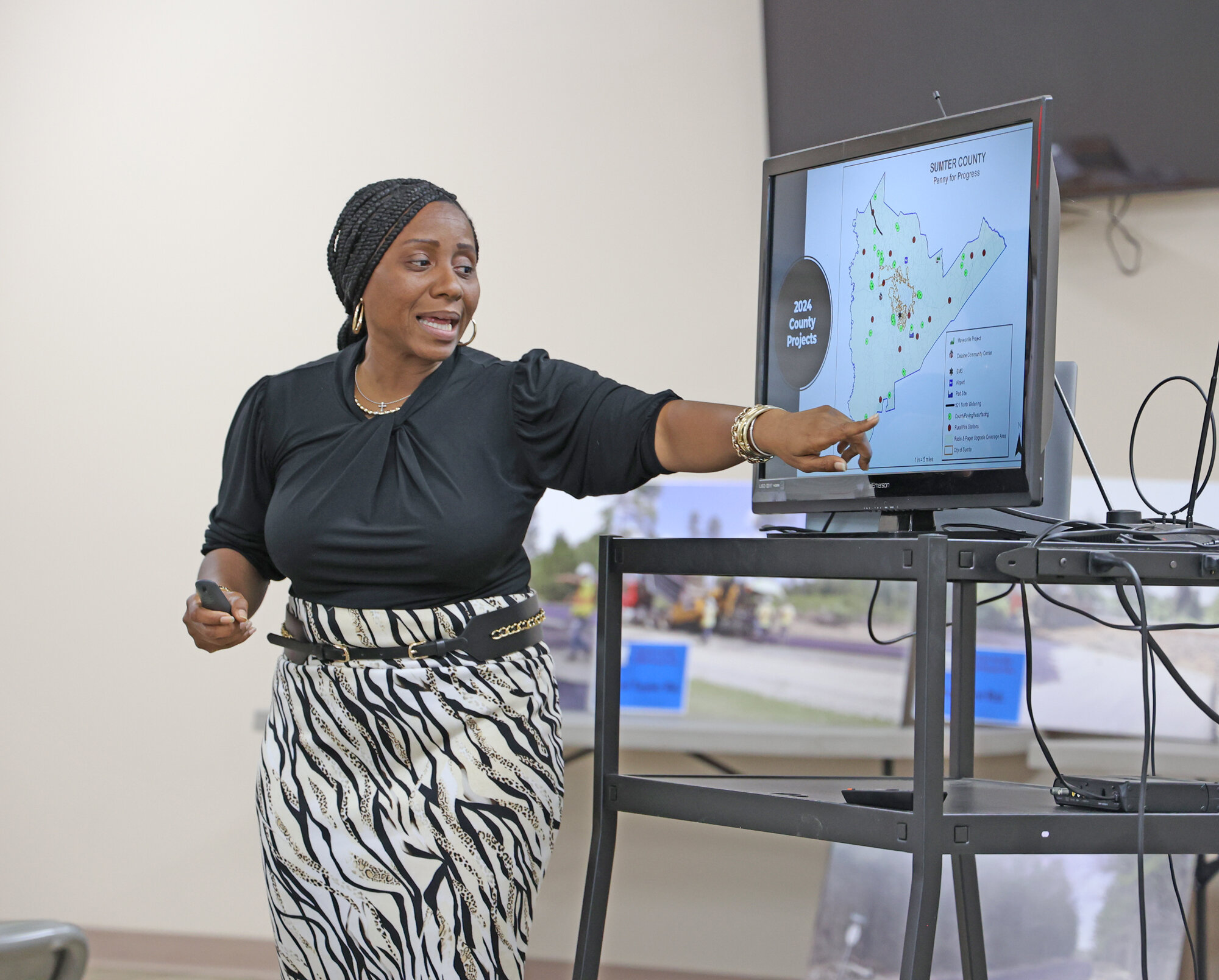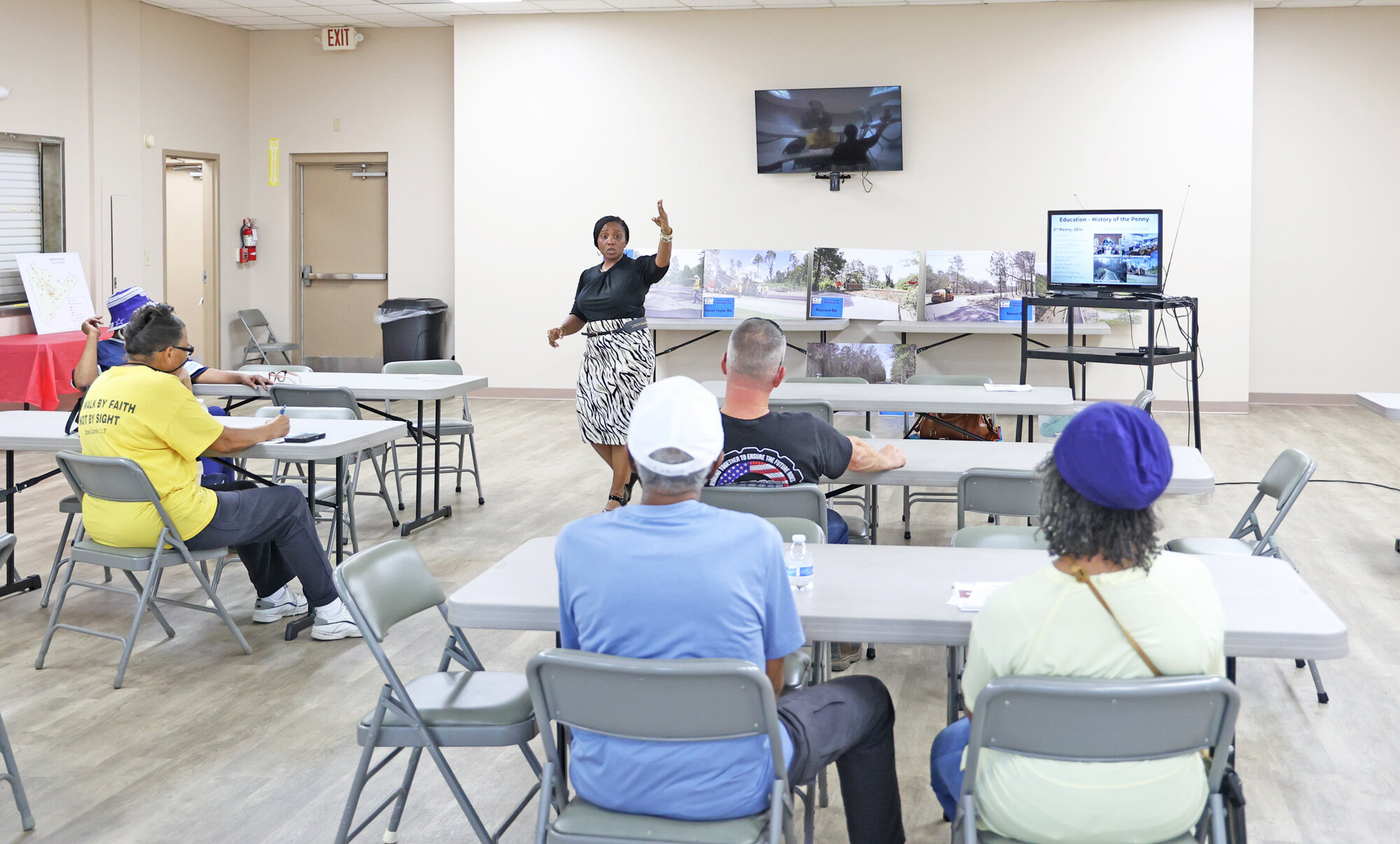18 Penny for Progress meetings held to inform voters in every Sumter district
deirdre@theitem.com
In November 2022, for the first time since it was first voted on in 2008, Sumter's Penny for Progress did not pass by a slim margin. This was accredited to a lack of public information regarding the Penny for Progress initiative, and as a result, a different approach was taken this election year.
Sumter EDGE (Economic Development Growth Engine) held 18 individual Penny for Progress meetings throughout each district from Oct. 1 to Oct. 10. One hundred twenty-nine people attended the meetings, according to Joe Perry with Sumter County Government.
Speakers at the meetings began by stating they were only trying to inform voters and not sway them one way or another.
"My goal is not to tell you how to vote," Sumter EDGE Manager of Communications and Strategic Initiatives Erika Williams said during her penny presentation. "My goal here this evening is just to educate you, to tell you your options, and when you decide - because I feel pretty confident you're here, so you're planning on voting Nov. 5, and I just want to arm you so that if you decide to vote yay or nay, it is your choice."
Meetings were held in each district's community centers as well as the three HOPE centers throughout the City of Sumter.
One concern about the current penny project list and past penny project lists is how it will contribute to rural areas.
"Last year, by voting no, mission accomplished, we (rural voters) were heard," one attendant of a Rembert Penny for Progress meeting said. "All of y'all are out here in the rural areas now holding these meetings tells me that we were heard."
This year's list contains 30 projects: seven public safety, six quality of life, 14 infrastructure and three economic development projects for $124.9 million in total, with a majority, $64 million, going toward infrastructure.
If the Penny for Progress initiative gets a majority approval from voters this November, there will be an added charge of 1% of the sales tax imposed that will fund capital projects, and it will be active for no more than eight years if voters approve it, according to previous The Item reporting.
This tax would not be paid on purchases of gas, medical supplies, prescription drugs or fresh groceries.
One point the meeting presenters made was that more than 30% of the Penny projects will be paid for by non-residents. Other counties also have a penny tax imposed, such as Florence County, that Sumter residents must pay when visiting the area.
"I just want you to be aware, I just want you to have an understanding so if it is yes, it's like 'I feel confident about this, and this is why,"' Williams said. "If you opt to vote against it, then I want you to know why as well."
If you missed the penny meetings, the PowerPoint that was presented is available at www.pennyforprogress.com. This PowerPoint breaks down what projects are going where as well as the history behind the 2008 and 2014 penny taxes.
More Articles to Read




